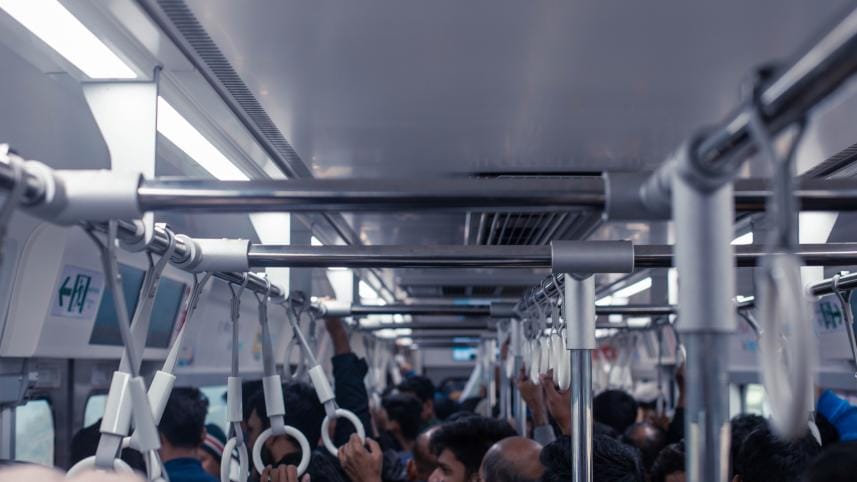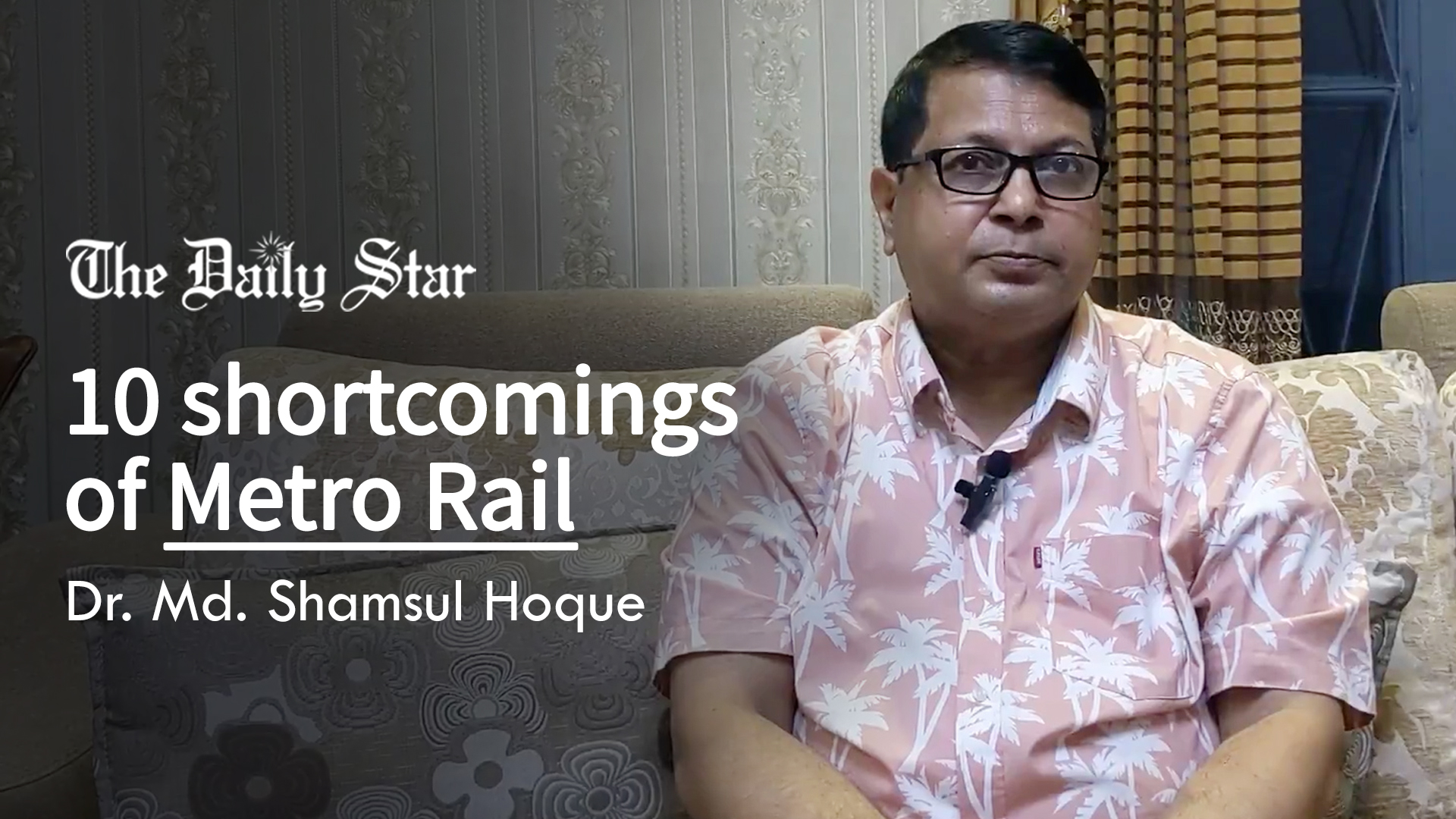Don’t turn metro rail into a status symbol

Recently, there has been a lot of discussion about the proposed imposition of a 15 percent VAT on the Dhaka metro rail service. The metro train ticket is currently VAT-exempt, a facility that will expire on June 30.
The National Board of Revenue is unwilling to extend the exemption as part of efforts to generate revenue for funding development projects aimed at making Bangladesh a developed nation by 2041. However, on Sunday, the road transport and bridges minister, Obaidul Quader, said that he had requested the prime minister to reconsider NBR's decision.
The minimum fare for the metro rail is Tk 20, while the per-kilometre fare is set at Tk 5. On the other hand, the per-kilometre fare in a city bus is set at Tk 2.42 and the minimum fare at Tk 10. So, on the surface, the metro fare may not seem much. But for many people from lower-income backgrounds, the difference between the bus and metro rail fares is significant enough to deter them from using the rail service. This difference further adds up when you cover the whole distance between Uttara and Motijheel. For the one-fifth of the population living below the poverty line, it means that they cannot use the service even at its current fare despite its comfort and fast commute times.
As such, the metro rail has divided commuters into distinct class groups. For one segment, the fare is affordable and worth the benefit it offers. But the other, larger segment—who fall in the lower-income bracket—must make do with the cheaper but more chaotic and time-consuming bus service. They are already suffering from high inflation, with the ever-increasing costs of food, healthcare, education and accommodation chipping away at their incomes and savings. They don't have the luxury of enjoying the comfort and speed of the metro. So, they end up spending more time commuting on less comfortable public transport options.
What is concerning is how the bureaucrats seem to be unaware of these realities. A 15 percent VAT imposed on the metro fare may be a minor inconvenience for those who can afford it. But for the poor, it will mean further shrinking their choices. Even many of those who can afford the service now will likely stop using it for regular commute if the tax benefits are withdrawn.
As Obaidul Quader has said: "Is there VAT on metro rail in India? No, there is not. So why should we impose it?" While his line of reasoning may be problematic, his appeal for not imposing VAT on a public service is laudable.
Therefore, the confusion created in the wake of recent statements on VAT exemption/imposition should be cleared. When making such decisions, our policymakers should prioritise the people who live on the margins. Improving the quality of life through mega projects should not come at the cost of further increasing disparities. We should ensure that the mega projects are more inclusive and benefit the segment of the population who need them more.
After all, by imposing VAT on metro service and thus taking it further away from the poor, metro rail risks becoming the preserve of the relatively well-off—perhaps even a status symbol for many.
Monorom Polok is a member of the editorial team at The Daily Star
Views expressed in this article are the author's own.
Follow The Daily Star Opinion on Facebook for the latest opinions, commentaries and analyses by experts and professionals. To contribute your article or letter to The Daily Star Opinion, see our guidelines for submission.




 For all latest news, follow The Daily Star's Google News channel.
For all latest news, follow The Daily Star's Google News channel. 

Comments